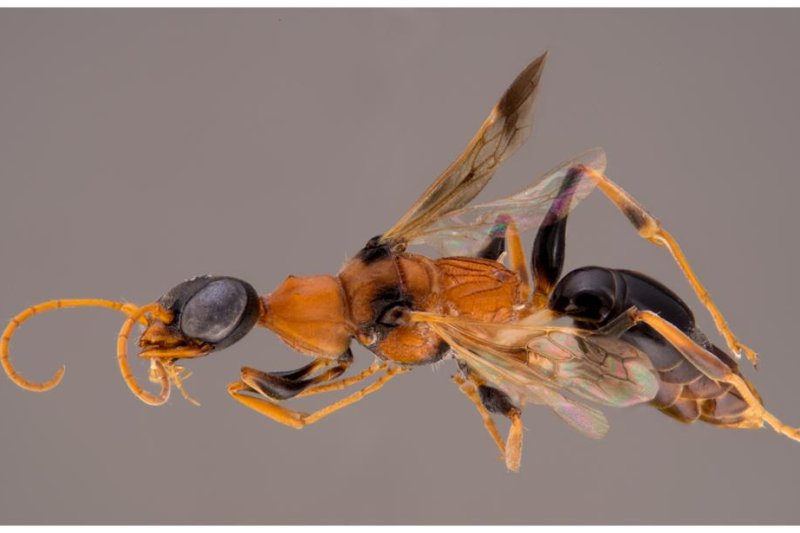The dementor wasp renders its victims passive zombies before eating them alive. Photo by PLOS ONE/WWF
BANGKOK, May 27 (UPI) -- Ampulex dementor, also known as the dementor wasp, is only one of 139 new species discovered last year in the Greater Mekong region, but it is most certainly the scariest.
As does a dead-end desk job to a recent college grad, the dementor wasp steals its victims' souls and then eats them alive. Or at least thats how the World Wildlife Foundation describes the insect in a recent profile of the newly discovered Southeast Asian species.
The wasp's name was chosen by popular vote. The choice -- an homage to the soul-sucking dementors of the Harry Potter book series -- was made by visitors to the Berlin natural history museum.
While the concept of a soul remains open for debate, the venomous wasp's hunting techniques are tried and true. Its methods render prey motionless, a "passive zombie" -- an injection of toxins direct to the belly paralyzes its preferred victims, beetles and roaches, before they're eaten.
The species was previously described in a 2014 journal article, published in PLOS ONE. "[The wasp] belongs to an ant-mimicking group of species with attractive coloration and rather bizarre habitus and probably also behavior," scientists wrote.
Though previously described, the species remained unnamed until recently. Scientists decided to involve the public in naming the insect, an attempt to draw attention to the endangered animals of the vulnerable habitat surrounding the Greater Mekong -- the river-based ecosystems that follow the Mekong from the highlands of southeastern China down through the hills, valleys and flatlands of Cambodia, Laos, Myanmar, Thailand and finally Vietnam.
"I am convinced that events like this increase people's curiosity about local and global fauna and nature," said Dr. Michael Ohl, a scientist who helped organize the democratic naming process.
Researchers say people who participated in the naming process reported an increased interest in the wasp and other newly discovered (and already vulnerable) species in Southeast Asia.















